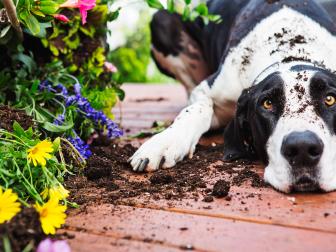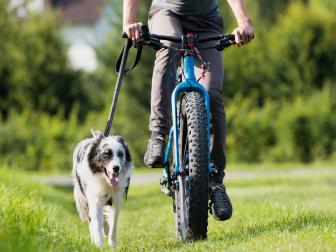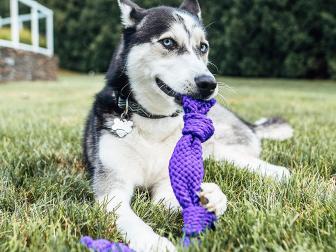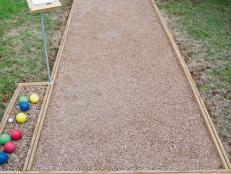How to Stop Your Dog From Digging in the Yard
Digging is unwelcomed and destructive behavior. Determine your dog’s motive and then follow these steps to prevent additional backyard damage.

A dog digging to bury its bone is a tale as old as time. Unfortunately, very few dogs actually dig to bury food or toys. Digging can be a sign of many different common behaviors that pet owners often experience with their dogs. Just like sniffing and barking, digging is instinctive. Many do it naturally, seemingly for no reason at all. That’s because it’s in their DNA!
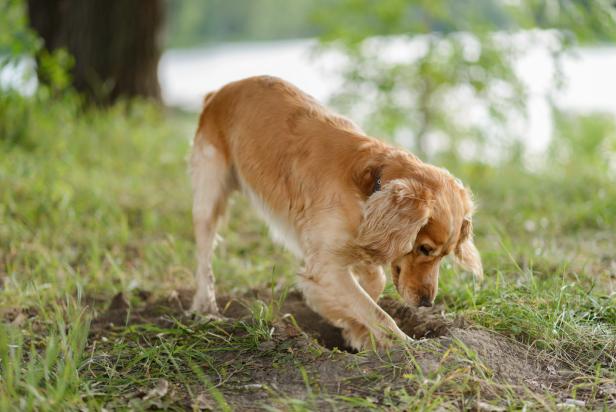
Shutterstock/Photopen
It’s obvious why dog owners get frustrated when even the most well-behaved dogs dig in the yard or garden. And damage caused by digging can be even worse when it happens indoors — yes, some dogs dig, scratch and aggressively paw at the furniture or floors.
Understanding why a dog digs is the first step to helping train against destruction.
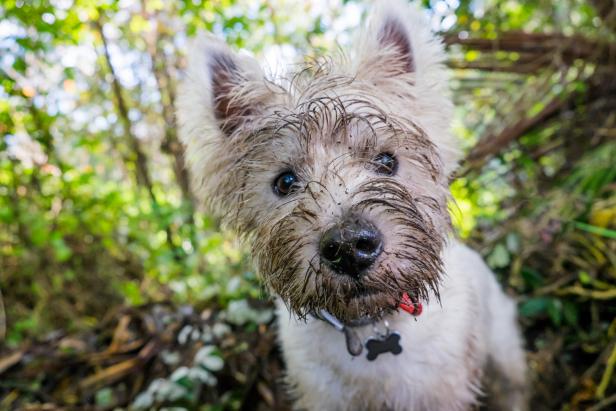
Shutterstock/corners74
Why Do Dogs Dig?
"Dogs will dig for a number of reasons," says Dr. Gary Richter, veterinarian and founder of Ultimate Pet Nutrition. "It can be due to boredom, for hunting, to seek shelter, to escape a fenced-in area or because of separation anxiety. Once you understand your dog's behavior, you can try some positive reinforcement techniques that will reward good behavior."
Boredom
Digging is an easy form of self-entertainment. Dogs left alone without their humans or toys might quickly find joy in the soil around the roots of a tree or beneath a bush. Tugging at roots is, of course, quite similar to a game of tug-of-war with their favorite partner. Puppies are not only very active, but they’re also curious and will test their limits. As they explore their instincts and boundaries, you might notice puppies nipping at grass and weeds for fun, escalating to soil and roots as they explore and grow.
How to Pet-Proof Your Garden
Learn how to keep the peace between your garden and pets with these simple pointers.
Attention
A dog learns quickly that any reaction is a form of attention, and digging in the yard is an easy way for some dogs to get what they really need. If they’re digging in plain sight knowing you’ll see them, they might be baiting you to play.
Hunting
Hunting is another instinctive trait in many dog breeds, so if your pet is prone to get excited over rabbits and squirrels, they may take to digging as part of their chase. If your yard is fenced, hunting instincts would be more obvious around the perimeter. You might also see their pacing form a well-worn path in the grass.
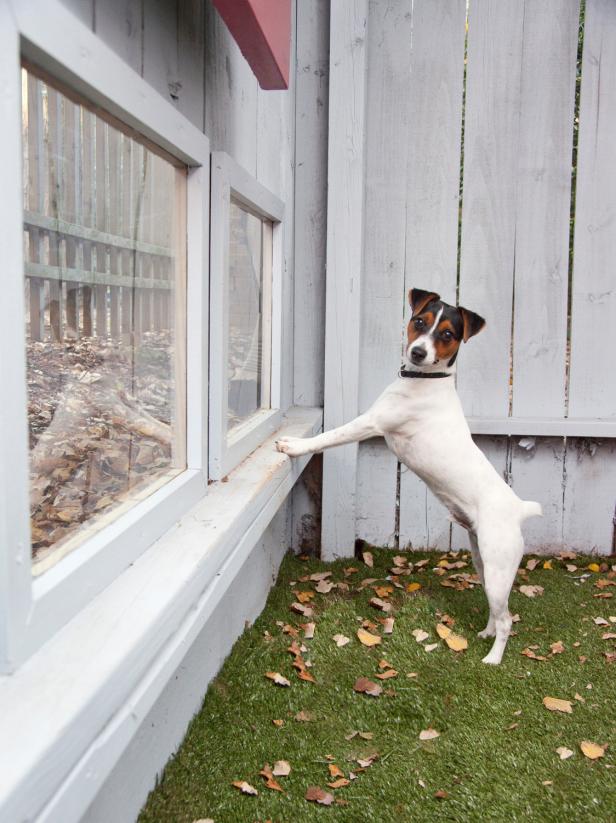
Escaping
Digging underneath a fence to chase squirrels and rabbits can lead to the thrill of escape. Some dogs also just have a higher tendency to want to “run away.” Dogs who have a curiosity towards cars, bicycles, joggers or other triggers may be digging for an escape route.
Nesting
Anxiety and aggression can culminate in marking with urine or denning to claim one’s territory. Dogs that dig indoors, such as on carpets, sofas and even on hardwood floors, may be exhibiting classic territorial behavior to mark their space.
Safety
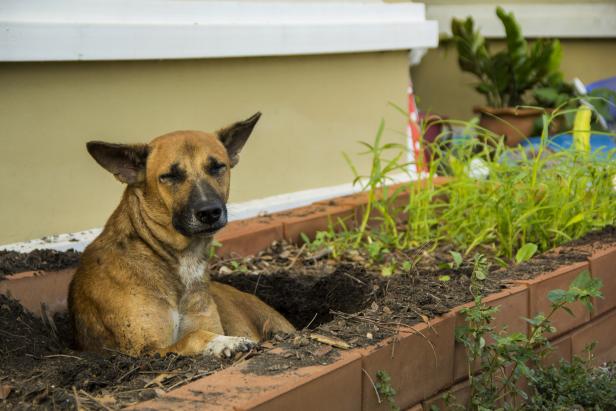
Shutterstock/Ton Bangkeaw
Some dogs dig for protection in extreme weather conditions. They may seek shelter in soil under a tree or bush or near a structure’s foundation. If your dog is laying in the hole it dug, it’s most likely trying to use it for protection against intense heat, cold or wind.
How to Stop Your Dog From Digging
Understanding why your dog is digging is the first step to resolving the behavior. From there, you can change routines and offer new, engaging opportunities to help curb their digging behaviors.
- If your dog digs for shelter, create a new, inviting setting for them. A new dog bed or sheltered dog house can offer comfort.
- Find new dog toys that will keep them interested and excited.
- Add more exercise to their routines. Lack of exercise is linked to behavioral issues, so in addition to giving them more playtime, you may want to start taking them on longer walks or exploring your local dog park.
- Some homeowners find that solid fence panels are enough to block their dog's line of sight to their target. If your dog is a runner, blocking their sightline can help eliminate stressors.
- It’s hard to suppress nature, but for dogs that instinctively want to hunt, you may need to pursue pest control. You might also want to give them a safe place to rest while wildlife is active (often in the morning and at dusk). If you need to use lawn treatments to get rid of tempting pests like moles and voles, always choose a product that’s environmentally friendly and safe for pets.
- Distraction tactics and positive reinforcement are the best way to eliminate digging around your home. Some owners can redirect and retrain dogs to dig in specific, “dig-approved” areas and reward them accordingly with treats. Other owners may successfully thwart bad digging habits by finding a reward that the dog likes even better and using it as a distraction tactic.
More Tips for Pet Owners
10 Fun Ways to Work Out With Your Dog 10 Photos
There's no reason to leave your furry friend behind when you want to get in a workout.
How to Calm an Anxious Dog
Learn how to help your pup overcome anxiety and depression.
The Best Dog Toys for Every Stage
Keep your dog busy and their senses sharp with the best toys for puppies, adults and seniors.






